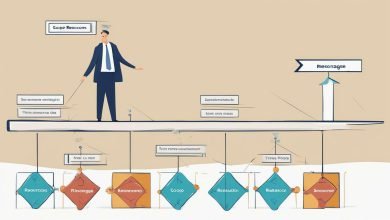
Introduction:
The field of web development offers a myriad of opportunities for individuals passionate about creating dynamic and interactive websites. If you aspire to become a professional web developer, this article will guide you through the essential steps to embark on this exciting career path.
1. Master the Fundamentals:
Begin by familiarizing yourself with the core web technologies. Learn HTML, the markup language that forms the structure of web pages, and CSS, the styling language that enhances their visual appeal. Understand how these two languages work together to create web content.
2. Embrace Responsive Web Design:
With the increasing prevalence of mobile devices, responsive web design is a critical skill for a web developer. Dive into responsive design principles, which involve creating websites that adapt seamlessly to different screen sizes and devices. Explore CSS frameworks like Bootstrap or Foundation to expedite the responsive design process.
3. Learn JavaScript:
JavaScript is the language of interactivity on the web. Study JavaScript to add dynamic behavior to your websites, including animations, form validation, and interactive features. Gain a solid understanding of JavaScript concepts, such as variables, functions, loops, and objects.
4. Explore Front-End Frameworks:
Front-end frameworks like React, Angular, or Vue.js are widely used to build complex and interactive web applications. Choose one of these frameworks and dive into its documentation and tutorials. Mastering a front-end framework will enhance your ability to build scalable and efficient web applications.
5. Understand Back-End Development:
Expand your knowledge by delving into back-end development. Familiarize yourself with server-side languages like Python, Ruby, PHP, or JavaScript (Node.js). Learn about databases, such as MySQL or MongoDB, to store and retrieve data for your web applications.
6. Gain Experience with CMS Platforms:
Content Management Systems (CMS) like WordPress, Drupal, or Joomla are popular tools for building websites. Experiment with these platforms to understand their features and functionalities. Knowing how to leverage CMS platforms will enable you to quickly create and customize websites for clients.
7. Learn Version Control:
Version control systems like Git are essential for collaborative web development. Understand the basics of version control, including creating branches, committing changes, and merging code. Platforms like GitHub or GitLab can help you host your repositories and collaborate with other developers.
8. Build a Strong Portfolio:
Creating a portfolio of your web development projects is crucial for showcasing your skills and attracting potential clients or employers. Start by building small projects and gradually take on more complex ones. Include detailed descriptions, code snippets, and live demos to highlight your expertise.
9. Engage with the Web Development Community:
Immerse yourself in the web development community to expand your knowledge and network with like-minded professionals. Attend local meetups, participate in online forums, and contribute to open-source projects. Collaborating with others will expose you to different perspectives and foster continuous learning.
10. Stay Updated and Continuously Learn:
Web development is a rapidly evolving field, with new tools, frameworks, and best practices emerging regularly. Stay up-to-date with the latest trends and technologies by following reputable blogs, subscribing to newsletters, and participating in online courses. Continuously learning and adapting to change is key to becoming a professional web developer.
Conclusion:
Becoming a professional web developer requires dedication, continuous learning, and hands-on experience. By mastering the fundamentals, expanding your skills in front-end and back-end development, and staying connected with the web development community, you can build a solid foundation for a successful career in web development. So, roll up your sleeves, dive into coding, and embark on your journey toward becoming a professional web developer!








